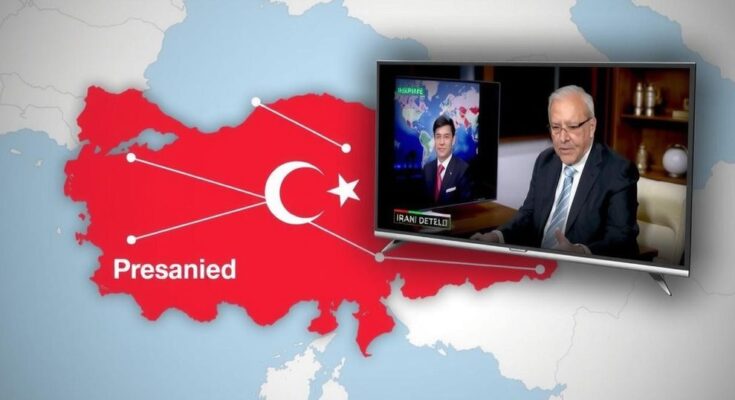On December 18, 2023, TRT launched its Persian-language service, TRT Farsi, enhancing its international reach amidst strained Iran relations. The initiative aims to counteract Western media dominance, as officials emphasize cultural ties and shared heritage. Despite previous controversies, the service is portrayed as a means of strengthening connections with Persian speakers, reflecting ongoing geopolitical dynamics in the region.
On December 18, 2023, Turkey’s state television channel, TRT, unveiled its Persian-language service, TRT Farsi, marking a significant development in the broadcaster’s international outreach. This initiative occurs amidst tense relations with Iran and aligns with similar foreign language media efforts targeting the Islamic Republic. As TRT seeks to extend its influence, this endeavor joins other channels such as Iran International, BBC Persian, and the VOA Farsi service. Fahrettin Altun, head of Turkey’s Presidential Communications Directorate, emphasized the service’s importance by stating it represents a “valuable service to humanity.” Furthermore, TRT’s Director General, Mehmet Zahid Sobaci, asserted that this initiative aims to counteract Western media dominance, encouraging broader perspectives in international news coverage.
During the launch ceremony in Ankara, Altun referenced the deep cultural ties between Turkey and Iran, invoking the literary heritage of Rumi as evidence of their enduring relationship. Sobaci echoed these sentiments but also pointed to contemporary issues in regional politics, likening the crises in both Syria and Gaza. His comments illustrated a broader critique of oppressive regimes, asserting that as oppression increases, so does the demand for justice. This service, the twelfth language platform for TRT, aspires to engage with over 130 million Persian speakers globally.
TRT’s new offering emerges at a particularly sensitive juncture, following significant political shifts in Syria and cooling relations between Ankara and Tehran. The initiative has faced scrutiny, especially after Sobaci previously mentioned it might “disturb Iran.” However, he later aimed for a more conciliatory tone during the launch, expressing a desire to enhance relationships through shared language and culture. Meanwhile, Turkish Foreign Minister Hakan Fidan’s remarks regarding Iran’s alleged need to learn lessons from Syria have contributed to the contentious atmosphere surrounding this launch. The Iranian media has criticized this perspective as being overdrawn and sardonic.
TRT has established itself as a prominent media outlet, claiming 11 billion views and 8 billion video watches across its existing services, with a substantial following on various digital platforms. The expansion to encompass Persian is not merely a strategic maneuver but also an effort to create a reliable conduit for communication between Turkish and Persian speakers.
The launch of TRT Farsi is a calculated move by Turkey to extend its media influence in the Persian-speaking world, particularly amidst increasing tensions between Iran and Turkey. This initiative reflects Turkey’s ongoing efforts to challenge Western media narratives and establish themselves as a counterweight in the media landscape. By providing content in Persian, TRT aims to foster cultural connections and demonstrate solidarity with Persian speakers, which is strategically significant given the current geopolitical climate in the region.
In summary, TRT’s launch of its Persian-language service, TRT Farsi, represents a strategic expansion of Turkish media influence aimed at fostering ties with Persian speakers while challenging Western media dominance. The initiative comes amid a backdrop of regional tensions and significant political shifts, revealing both the potential for cultural collaboration and the complexities of Turkey-Iran relations. As TRT continues to grow its reach, the implications for regional media and communication will be closely monitored.
Original Source: www.intellinews.com




